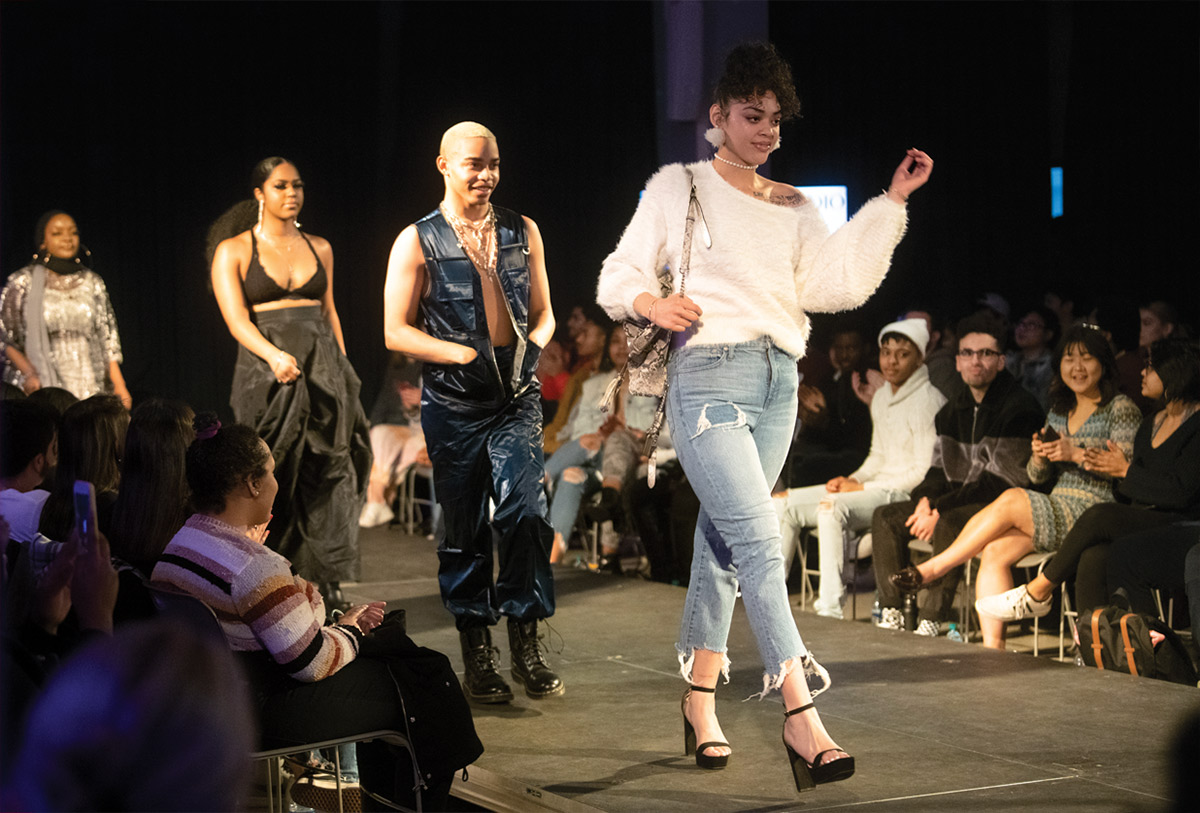In the 174 years since Bucknell was founded, many traditions have come and gone. But occasionally students realize that some are worth resurrecting. Effiem Obasi ’20 is a case in point. Obasi was serving as president of the Black Student Union (BSU) when she discovered there once was a Black Alumni Weekend on campus. But it was phased out in 1998, the year of her birth. Obasi had been looking for ways to strengthen the bond between Black alumni and current students, so she launched a revived Black Alumni Weekend last year. Though no longer the BSU president, she helped plan the second annual weekend Feb. 28–March 1.
This year’s celebration was even bigger and better as the decade-old, student-led Black Arts Festival merged with Black Alumni Weekend. The combined programs offered a chance for Black alumni and students to meet, network and honor Black history at Bucknell. Standout events included a networking brunch with an alumni panel, a step-dance show featuring local Black Greek letter organizations (and the University’s own Bisonettes dance team) and a Black history exhibit in Bucknell’s African American affinity house.
“We wanted to create something that made Black alumni feel like they needed to come back to campus and reconnect,” says Obasi, a psychology major and Posse scholar from Los Angeles. “We also thought it was important to establish something that current Black students can claim ownership of and can connect to 10, 15 or 30 years from now.”
Ownership was central to the theme of this year’s celebration, titled “We Built This,” which focused on the contributions Black people have made throughout American history and at Bucknell. The weekend kicked off with a student-produced fashion show in Larison Hall. A brunch panel drew several successful alumni who spoke on their professional lives postgraduation. They were former T.E.A.M. peer mentor Dabreon Darby ’19, former BSU President Nneoma Ibezim ’18, former resident assistant and BSU member Brittany Anderson ’07 and Kappa Alpha Psi fraternity member Larnie Booker ’93.


For Obasi, it’s essential to the Black experience on campus for students to learn from those who came before.
“It was really reinforced by the importance of strengthening relationships within the Black Bucknell community,” she says. “This year, it felt like family getting back together.”